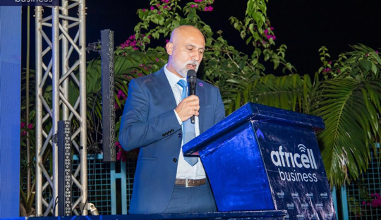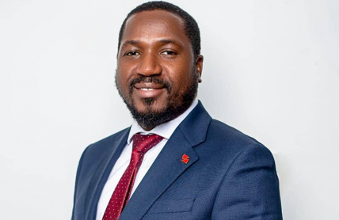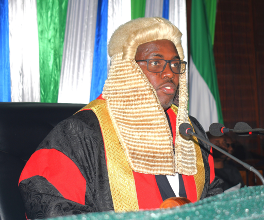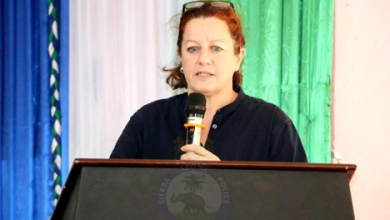Sierra Leone Hosts Workshop on Localizing UN SDGs and Agenda 2063
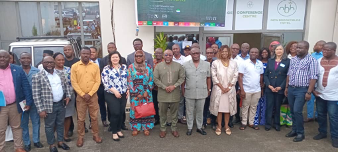
The United Nations Department of Economic and Social Affairs (UN DESA), through its Division for Public Institutions and Digital Governance, in partnership with the African Peer Review Mechanism (APRM) of the African Union and the Government of Sierra Leone, on Tuesday commenced a four-day national workshop under the theme:
“Localizing the Sustainable Development Goals (SDGs) and Agenda 2063 in Sierra Leone: Advancing the Principle of Subsidiarity in Practice.”
The event is taking place at the New Brookfields Hotel in Freetown.
Supported by the Government of Italy, the workshop is part of the regional initiative titled “Strengthening Local and National Government Capacities for SDG Localization in Africa,” implemented by UN DESA. The project aims to strengthen the institutional capacities of local and national governments to accelerate SDG implementation, improve local planning, budgeting, and service delivery, and raise awareness around Agenda 2063.
The workshop seeks to support national and local stakeholders in translating SDG and Agenda 2063 priorities into concrete, actionable local development strategies.
A key focus of the workshop is to deepen the understanding and application of the principle of subsidiarity—one of the 11 Principles of Effective Governance for Sustainable Development endorsed by ECOSOC in 2018. Subsidiarity emphasizes the delegation of responsibilities to the lowest effective level of government, while maintaining coherence across all governance levels.
Participants include representatives from across Sierra Leone: development partners, Ministries, Departments and Agencies (MDAs), local councils, civil society organizations, UN agencies, and the media.
Sierra Leone was selected for this initiative in recognition of its ongoing efforts to localize the SDGs and strengthen multi-level governance. The country has also participated actively in the APRM–UN DESA continental capacity-building programme on the UN Principles of Effective Governance. Additionally, Sierra Leone’s experience conducting Voluntary Local Reviews (VLRs) in three municipalities provides a strong foundation for scaling up inclusive, locally driven development.
Delivering the keynote address, Chief Minister Dr. David Moinina Sengeh reaffirmed the government’s commitment to partnerships at all levels and emphasized the importance of embedding SDGs into local plans and budgets.
“When the SDGs are embedded in local planning, progress accelerates, impact deepens, and no one is left behind,” he stated.
Dr. Sengeh noted that the government’s Big Five Game Changers are rooted in human capital development, aligned with both African Union and United Nations frameworks. He also called on local councils to encourage digital tax payments and reaffirmed that radical inclusion, particularly of women and youth, remains central to Sierra Leone’s development approach.
Minister of Planning and Economic Development (MoPED), Madam Kenyeh Barlay, assured participants of the government’s commitment to global recognition and local implementation. She acknowledged gaps in past development planning but emphasized that Sierra Leone has domesticated most AU and UN protocols and is ready to move forward through partnerships and innovation.
“Now is the time to articulate our country’s needs. We must think outside the box and explore innovative revenue sources for local councils,” she urged.
The workshop was chaired by Mr. Ambrose James, Development Secretary at MoPED. Other speakers included:
• Ms. Adriana Alberti, Chief of the Program Management and Capacity Development Unit, UN DESA
• Mr. Fredrick Ampiah, UNDP Resident Representative and UN Resident Coordinator (AI), Sierra Leone
• Mr. Tamba Lamina, Minister of Local Government and Community Development
Day one of the training was facilitated by Ms. Nosipho Dhladhla from the Division for Public Institutions and Digital Governance (DPIDG), UN DESA.
This workshop marks another important step in Sierra Leone’s commitment to aligning national development with global (Agenda 2030) and continental (Agenda 2063) goals, and ensuring that no one is left behind in the pursuit of sustainable development.


